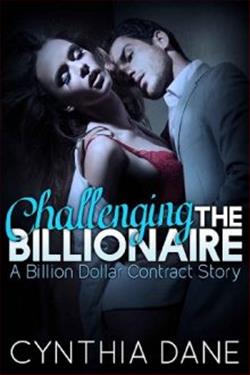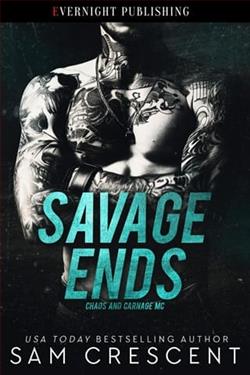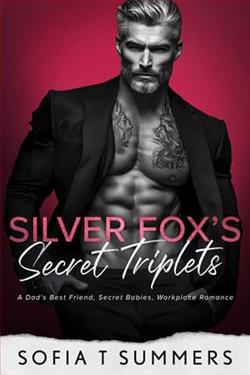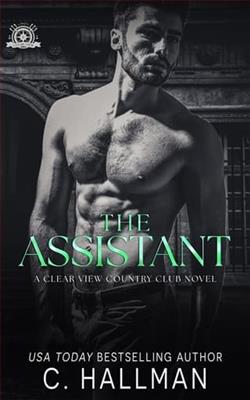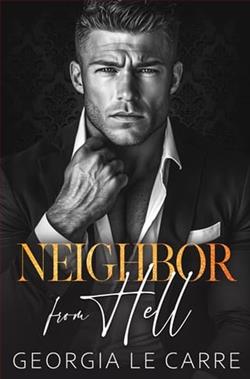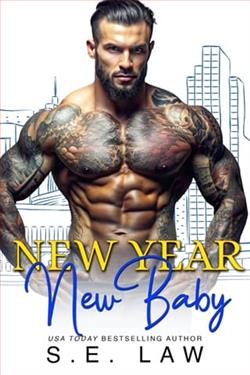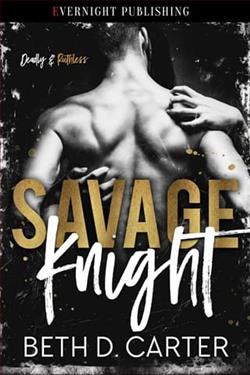Page 58 of Heart Strings
No one ismore beautiful than a bride on her wedding day, but Aidan is a close second. His suit stretches distractingly across his toned shoulders and those killer dimples are back on full display. I can’t keep my eyes off him during dinner.
The only thing that could distract me from the magnetic pull between us is accidentally eavesdropping on my parents at the next table over. They’re close enough to catch my dad mingling with Deirdre while my mom miserably picks at her salmon.
Aidan follows my gaze to their table and frowns. “Does your mam need help?”
It’s sweet that he is concerned about her, but I don’t know what I could do, other than invite her to the head table with us. And, well, I’m feeling guarded over my limited time with Aidan. I don’t really want to let her into this space. “Maybe it’s best if I stay out of it.”
From my place at the head table, I hear Aunt Sharon start to tell my mom about how Reiki would release my heart chakra,and I’ve never been so relieved for a band to call guests to the dance floor. I snatch Aidan’s hand and he sprints out with me.
The wedding couple’s eclectic music tastes make for a whiplash-inducing set list of Irish trad, old-school alternative covers, and country classics, even a little disco. The band was a bit starstruck by Aidan’s presence but tried their best to play it cool. I can tell he’s doing his best to keep out of the limelight and center Callum and Lark tonight.
When they break into Steve Earle’s “The Galway Girl,” changing the hair color of the song’s heroine to match the bride’s blonde locks, Aidan spins me. Laughter shakes his chest as he looks at me with such affection. His toast echoes in my mind:It might not be how you expect, but when it’s right, you feel it.Staring into his face, smooth-shaven and dimpled once more, has me feeling weightless. This ismyAidan and being in his arms again is right. I feel it.
He slows, turns his head, and I realize he’s speaking to my dad. Immediately, that bubbly sensation is replaced by a lead weight in my stomach. Aidan squeezes my hand as he gives my dad permission to cut in, then excuses himself to peruse the dessert table.
“Lovely wedding,” my dad says, bringing me into a formal dance hold. “Lark looks so happy.”
Salt and pepper threads through his dark hair and a tasteful Italian suit rests on his shoulders.
“Mmm-hmmm,” I hum.
“Why are you so cold to me?”
“Sorry, but it’s kind of hard for me to pretend to be a big, happy family.”
“I’m trying here, mija. You can meet me halfway.”
“Don’t you think it’s a little late for that?”
“I’m still a part of this family. And Lark invited me.”
“And you RSVP’d no, only to pop up here anyway because you feel lonely or bored or worried about who will take care of you when you’re old. Where were you when Mom needed taking care of? Or for her fiftieth? My sweet sixteen? Hell, my last chemo infusion?” Hurt flashes across his face alongside the flecks of light from the disco ball overhead, but I power on. “How do you think Mom felt, doing it all on her own while you traveled the country? How do you think she feels seeing you at a wedding, of all places, after you broke her heart?”
“Someone had to provide for you. That’s all I could do,” he says, pulling away. “It’s true that I wasn’t a perfect father or a perfect husband, but I did my best. I was alone through it also.”
Part of me wants to shout that the isolation was his fault and all he had to do was talk, but that’s not fair. He was raised different. My abuelos were stoic and old-school, and male emotional vulnerability can be seen as weakness where my dad grew up. Just admitting that he was powerless is probably a huge deal for him. But I need more.
I wish he’d absolve me of my guilt that my sickness broke our family. My guilt for resenting the very job that enabled us to afford my treatment and a portion of my tuition. I’ve thanked him for helping me many times, but it’s easier to prove my gratitude by excelling in school than to articulate those complicated feelings. My teeth grind at the effort it takes to swallow that down. “This isn’t the appropriate time, okay? We can talk about it tomorrow, but just let me enjoy the reception.”
I push past my dad and dodge dancers on my march to the dessert table, where I find Aidan. Towers of gold-leafed macaronsrise high above ice-filled steel tubs of water bottles. Votive candles and lush blossoms snake through the tablescape and hang suspended overhead. Callum’s “Havarti and Plague Rat” groom’s cake steals the spotlight: a round white mouse in a bridal veil and a dark rat in a waistcoat. Lark had based the now-iconic characters on her and Callum.
Aidan leans close. “Are you sure you don’t need to spend time with your parents?”
“Maybe later.” I grab a bottle of water and take a swig.
“Just let me know, all right? All I want is to dance with you, touch you, but I also don’t want to monopolize your whole night.”
“I want to spend it with you.” The look on his face is the greatest reward. I’m two wine spritzers in at this point and determined to make my cousin’s wedding—and my limited time with Aidan—a positive memory. “Come on. Let’s have some fun.”
When the band finishes the song, Lark gets up in front of the stage and lifts the hem of her dress to reveal pink boots. A string wraps around her ankle, leading to a balloon. Filled with air instead of helium, it rolls and bounces along the floor at her feet. Callum lifts his foot to reveal a balloon around his ankle, too.
“Okay y’all, we’re going to play balloon stomp,” she announces. “Rules are simple: Keep your balloon on and intact. Last balloon standing wins.”
I grab a tray filled with uninflated balloons, lengths of string, and pass them out to each reveler. Guests are puffy-cheeked as they blow up their balloons, laughing and making threats. I get to Aidan, flushed pink and already a little undone.
“You’re going down, Valdez,” he murmurs as he selects a balloon.
“We’ll see about that, O’Toole.”








